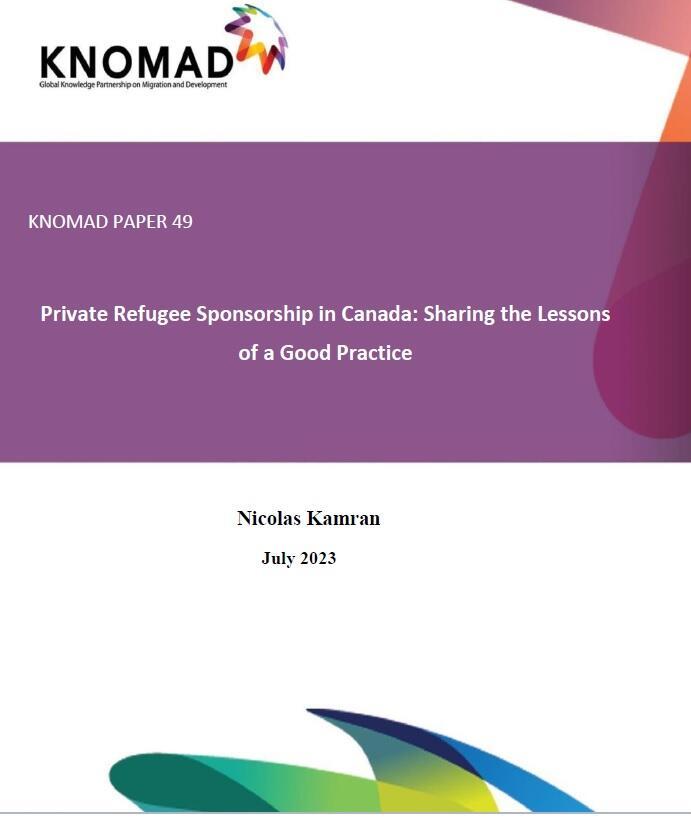
Private Refugee Sponsorship in Canada: Sharing the Lessons of a Good Practice
In a global context where refugees in need of resettlement often remain without a durable solution, several countries have searched for ways to take in newcomers at low political and financial cost. It is within this setting that Canada and its “private sponsorship” program have become increasingly influential. No fewer than twelve countries now operate or have committed to developing sponsorship programs, all of whom differ in their national frameworks but are united by the prospect of enabling communities to support the economic and social integration of refugees independently of government assistance. As interest in private refugee sponsorship continues to grow around the world, the enticing mix of humanitarian sentiment and economic efficiency that has characterised its international appeal warrants further examination.
Having regard to worldwide refugee protection needs and the role private refugee sponsorship can play in it, this report provides a broad overview of Canada’s unique approach to refugee resettlement. In doing so, it offers an (I) extensive outline of how private refugee sponsorship works, who it benefits, and how it came to be. On a similarly descriptive level, this report takes stock of the (II) outcomes this program has produced for refugees and sponsors—and accordingly reviews the issues that have resulted from them. With an eye to more critical perspectives, this report also examines the scholarly (III) critiques that have emerged against the program and concludes with (IV) coverage of its noted advantages and benefits. The intention in following this structure is to furnish a simultaneously clear and wide-ranging characterisation of private sponsorship as presently constituted in Canada—one that is detailed in its descriptions, nuanced in its analysis, fair in its critiques, and rigorous in its conclusions. With hope, a contribution of this nature can help concerned actors maintain a clear-sighted approach to discussions on private sponsorship.

